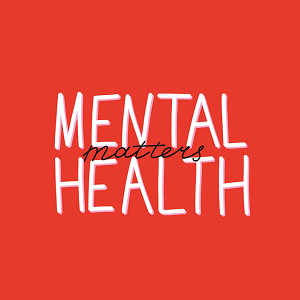More Employers Embrace Their Role in Influencing Employee Mental Health
 By Terri L. Rhodes, CCMP, CLMS, CPDM, MBA, CEO, DMEC
By Terri L. Rhodes, CCMP, CLMS, CPDM, MBA, CEO, DMEC
DMEC has emphasized mental health since it was founded 30 years ago. An example of that ongoing commitment is this edition of @Work magazine — published during Mental Health Awareness month and dedicated solely to mental health in the workplace.
While the pandemic blurred the lines between work and home, it also spotlighted mental health awareness. Some say it was a wake-up call for employers, and I am pleased to see a greater acceptance of and discussion about mental health issues among employers and society at large.
The “Future Proofing Your Absence Management Program” roundtable discussion at the 2022 DMEC Virtual Compliance Conference on April 27 highlighted the fact that mental health is seen as a component of overall health and wellness that influences absence management.
Attendees shared programs intended to encourage healthier work-life integration, mitigate burnout, and support inclusive environments. They discussed tactics for responding to a “huge increase in leave and ADA accommodation requests due to mental health” for employees and their children in the last several months, including a new lifestyle account for lawn care and grocery delivery to alleviate employee stress and adding paid family leave for employees with less than a year tenure.
These creative solutions help address mental health issues created or exacerbated by COVID-19, including loneliness which has been described as a public health concern that prompted billions of dollars in losses.
An Employer’s Responsibility
Today more employers recognize the powerful influence they have on employee health and realize that investments in whole-person health (mental and physical as well as substance use) benefit productivity.
The Department of Labor (DOL) does as well. A “Mental Health at Work: What Can I Do?” campaign1 released in March emphasizes how employers can help people who experience mental illness (nearly 50 million adults in America) get help and how work can contribute to mental health issues.2
For example, the 2021 Mind the Workplace Survey illustrates how workplace stress affects employee mental health3 with sobering statistics about employees who don’t feel acknowledged or supported by supervisors, increasing rates of burnout and early signs that burnout is imminent.
The data justifies action and could help with a return on investment for additional programs.
While COVID-19 worsened mental health issues, the country was straining under increased demand for mental health services and a dearth of providers before the pandemic. For example, 39% of American workers were suffering from mental health issues in 2019, a number that jumped to 46% in 2020.4
Creative Solutions
Employers are discussing unique approaches to address the issue, and as one compliance conference participant said, “We are socializing the concept that ‘it’s OK not to feel OK.’”
Employers are in powerful positions to influence employee mental health and well-being, and one lever is healthcare benefits as outlined in “Breaking Down Barriers to Mental Health Parity in Disability Plans,” one of two feature stories in this issue. A recent report outlines how employers can use their power when they purchase healthcare. 5
It’s helpful (if not essential during such uncertain times) to learn from each other — a foundational component to DMEC that continues to drive our work. We built a solid foundation that enables a successful future, and I look forward to celebrating with you during our 30th anniversary celebration at the 2022 DMEC Annual Conference in Denver.
References
- Department of Labor. “Mental Health at Work: What Can You Do?” Retrieved from https://www.whatcanyoudocampaign.org/psa-campaigns/mental-health-psa/
- Mental Health America. Prevalence Data 2022. Retrieved from https://mhanational.org/issues/2022/mental-health-america-prevalence-data#one
- Mental Health America. Mind the Workplace Health Survey 2021. Retrieved from https://mhanational.org/sites/default/files/Mind%20the%20Workplace%20-%20MHA%20Workplace%20Health%20Survey%202021%202.12.21.pdf
- The Standard. COVID-19 Pandemic Impact on Behavioral Health in the Workplace. Retrieved from https://www.standard.com/eforms/21962.pdf
- Purchaser Business Group on Health. A Little Less Conversation, A Little More Action. October 2021. Retrieved from https://www.pbgh.org/wp-content/uploads/2021/11/PBGH-Summit-5-Takeaways.pdf



